Argentina’s journey from the devastating Dirty War to a thriving democracy is a powerful testament to the resilience of the human spirit. The Mothers of the Plaza de Mayo, in their relentless pursuit of truth and justice, became the beating heart of this profound transformation. Their courageous fight against grave human rights abuses not only honored the victims but also served as a beacon of hope, inspiring others to stand up for the values of democracy. As the nation grappled with the shadows of its past, the path forward revealed invaluable lessons about the importance of safeguarding human rights and the fragility of democratic institutions.
Key Points
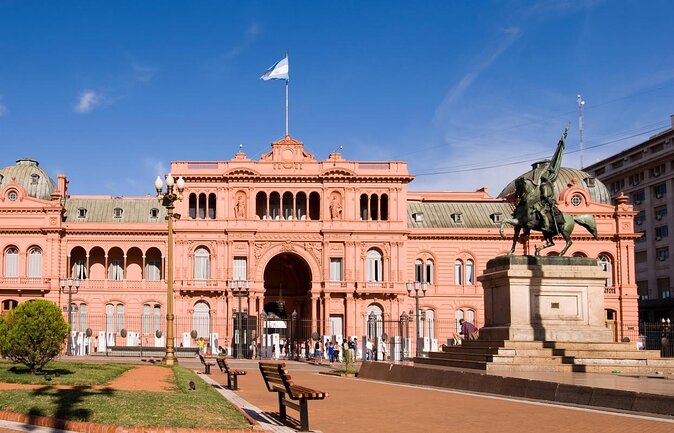
-
Argentina’s transition to democracy after the Dirty War involved grassroots movements demanding accountability, truth-seeking initiatives, and legal reforms to address past human rights abuses.
-
The Mothers of the Plaza de Mayo emerged as a powerful symbol of resistance against the military junta’s repression, contributing to exposing regime crimes and restoring democracy.
-
Preserving the memory of the disappeared through monuments and museums serves as a call to action for ongoing human rights vigilance in Argentina.
-
Empowering civil society, promoting transparency, and integrating human rights education are essential lessons for strengthening democratic institutions and preventing authoritarian backsliding.
-
Argentina’s resilience and determination in confronting its past atrocities and forging a democratic future serve as an inspiring example for other nations struggling with similar challenges.
Unveiling the Dirty War
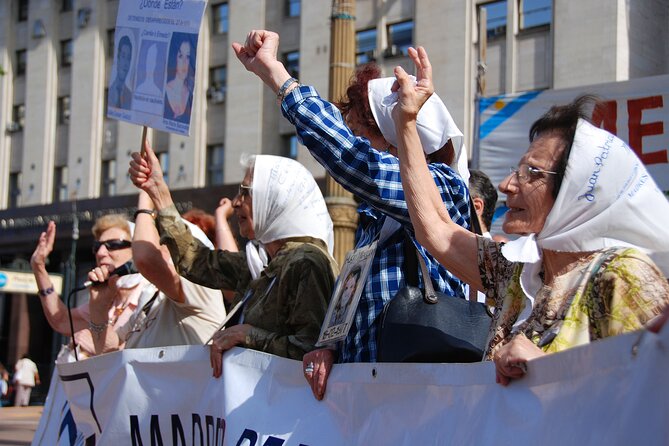
The Argentine Dirty War, a dark chapter in the nation’s history, casts a long shadow over Buenos Aires’ landscape.
From 1976 to 1983, the military junta brutally crushed political dissent, "disappearing" tens of thousands of citizens.
Iconic sites like the Mothers of the Plaza de Mayo serve as haunting reminders of the regime’s atrocities.
Tour guides illuminate the visible scars, revealing how this traumatic past still shapes Argentina’s democratic struggle.
Visitors confront the weight of history, gaining a deeper understanding of the country’s ongoing fight for human rights and justice.
This tour offers a sobering yet essential exploration of a complex and contentious chapter in Argentina’s journey towards a more just and equitable society.
You can also read our reviews of more tours and experiences in Buenos Aires.
Dictatorship and Repression
Beneath the democratic veneer, Argentina’s history was marred by a dark chapter of authoritarian rule.
In 1976, a military junta seized power, ushering in a brutal dictatorship known as the "Dirty War." The regime ruthlessly cracked down on perceived dissidents, disappearing and torturing thousands of citizens. Political opposition, free speech, and human rights were severely restricted.
Clandestine detention centers were used to imprison, interrogate, and execute those deemed enemies of the state. This reign of terror left deep scars on Argentine society, shattering trust in institutions and fostering a culture of fear and repression.
The fight to uncover the truth and hold the perpetrators accountable would become a defining struggle in Argentina’s arduous journey towards democracy.
Mothers of the Plaza De Mayo
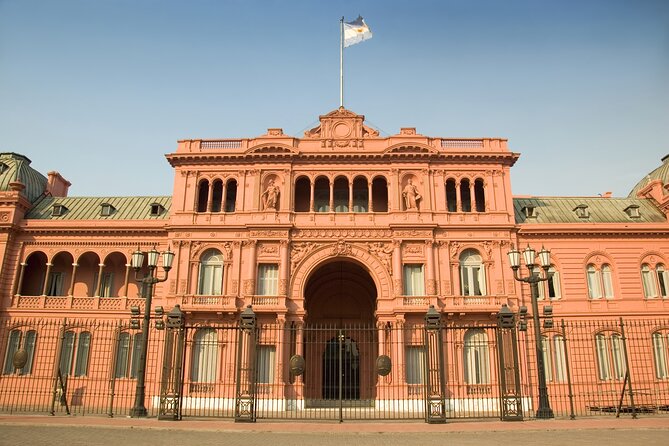
Amidst the harrowing human rights abuses of the Dirty War, a group of courageous women emerged as the conscience of Argentina.
Known as the Mothers of the Plaza de Mayo, these mothers of the "disappeared" bravely gathered in the plaza each Thursday to demand information about their missing loved ones.
Undeterred by the brutal military regime, they became a powerful symbol of resistance, using non-violent protest to keep the atrocities of the dictatorship in the public eye.
Their tireless activism eventually helped to expose the regime’s crimes and paved the way for Argentina’s return to democracy.
The Mothers’ legacy continues to inspire human rights movements around the world.
Reclaiming Memory and Justice
Following the military junta’s downfall, Argentinians sought to reclaim the nation’s memory and pursue justice for the atrocities committed during the Dirty War.
Human rights organizations, such as the Mothers of the Plaza de Mayo, led grassroots efforts to uncover the truth about the disappeared and demand accountability.
Despite political resistance, countless Argentinians participated in protests, memorials, and legal battles to ensure the country’s painful past wouldn’t be forgotten.
Slowly, the nation began to address its traumatic history, establishing truth commissions, prosecuting perpetrators, and preserving sites of memory.
This arduous process empowered Argentinians to confront their past, heal, and lay the foundation for a more democratic future.
Monuments of Remembrance
Across Argentina, a network of monuments and memorials stands as a testament to the country’s struggle for human rights.
From the Plaza de Mayo in Buenos Aires to the Parque de la Memoria in Rosario, these symbolic sites commemorate the victims of the Dirty War and the ongoing fight for justice.
Visitors can explore the Museo Sitio de Memoria ESMA, a former detention center turned museum, or the Monumento a las Víctimas del Terrorismo de Estado, a powerful sculpture honoring those who disappeared.
These monuments not only preserve memory but also serve as a call to action, reminding Argentinians to remain vigilant in defending human rights and democratic values.
Resilience and Resistance
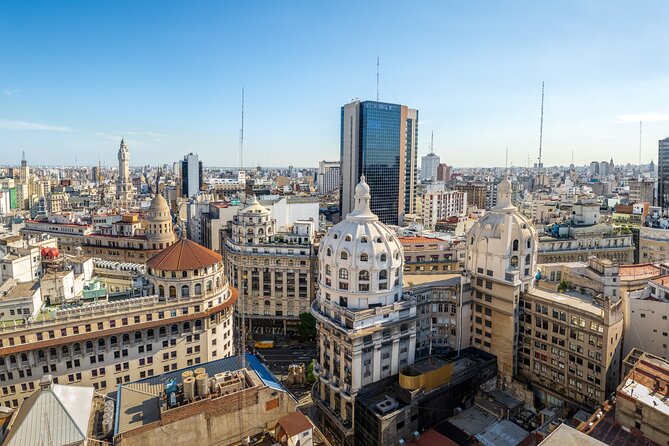
The Argentine people’s resilience and resistance against human rights abuses have been at the forefront of the country’s democratic transformation.
From the Mothers of the Plaza de Mayo’s tireless protests against disappearances to the Dirty War survivors‘ efforts to seek justice, the Argentine spirit of defiance has remained unbroken.
This resilience manifests in:
- Grassroots movements demanding accountability and truth
- Artistic expressions that commemorate the victims and celebrate survival
- Legal battles to prosecute perpetrators and overturn amnesty laws
- Community-based initiatives to support victims and promote reconciliation
- Educational programs that ensure the historical record isn’t forgotten
The scars of the past may be visible, but the Argentine people’s unwavering determination to forge a more just and democratic future is a testament to their resilience.
The Path to Democracy
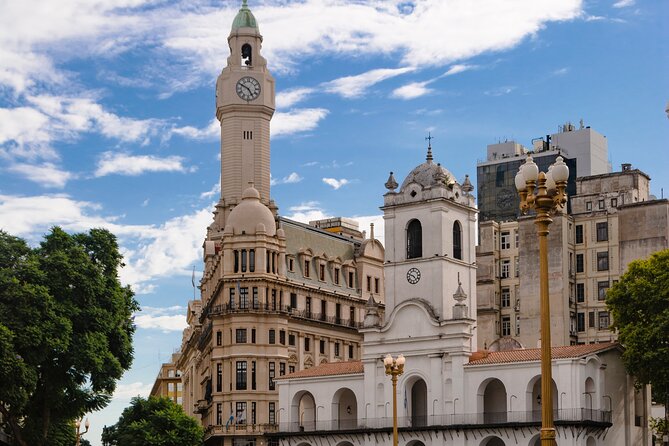
Despite the immense challenges and dark chapters in Argentina’s history, the country’s journey towards democracy has been a hard-fought and pivotal process.
Following the end of the military dictatorship, Argentinians worked tirelessly to establish democratic institutions and ensure the protection of human rights. This path was marked by civil society movements, legal reforms, and the prosecution of human rights abusers.
Today, Argentina’s democracy, though still fragile in some aspects, stands as a testament to the resilience and determination of its people.
The scars of the past remain visible, serving as a constant reminder of the importance of safeguarding the hard-won freedoms and rights that define a true democratic society.
Lessons for the Future
Argentina’s fight for human rights has yielded valuable lessons that can inform the country’s continued democratic progress.
As the nation looks to the future, key areas of focus include:
-
Strengthening democratic institutions and the rule of law to prevent authoritarian backsliding
-
Promoting transparency and accountability in government to combat corruption
-
Empowering civil society and upholding freedom of expression to give voice to marginalized groups
-
Implementing comprehensive reparations and reconciliation programs for victims of past atrocities
-
Integrating human rights education into curricula to cultivate a culture of respect and dignity
Frequently Asked Questions
Is the Tour Wheelchair Accessible?
The tour is not wheelchair accessible, but service animals are allowed. The meeting and end points are near public transportation options, making the tour accessible to most travelers.
Are Service Animals Allowed on the Tour?
According to the tour details, service animals are allowed on this tour, though the tour itself is not wheelchair accessible. The tour overview states that it is "service animals allowed" under the Accessibility section.
How Close Is the Tour to Public Transportation?
The tour is near public transportation. According to the tour overview, the meeting point is located near public transportation, making it accessible for participants to reach the starting point of the tour.
Is Tipping Expected for the Guide?
Tips aren’t required but are mostly welcomed by the guide. The tour overview notes that tips aren’t included, suggesting they’re appreciated but not mandatory for this private tour experience.
How Flexible Is the Booking and Availability for This Tour?
The booking and availability for this tour is flexible. Travelers can check availability and secure their spot while staying flexible, and Viator verifies the reviews provided by travelers who have taken the tour.
Recap
The Argentine people’s unwavering determination to confront their dark past and forge a brighter future serves as a powerful testament to the enduring power of democracy and human rights. Their story underscores the importance of collective memory, accountability, and resilience in the face of authoritarian rule. The lessons from Argentina’s journey resonate globally, reminding us that the fight for justice and democratic ideals must be ever-vigilant.
More Tour Reviews in Buenos Aires
Not for you? Here's more things to do in Buenos Aires we have recnetly reviewed
- 2 Best Canoe And Kayak Experiences In Buenos Aires
- 9 Best 2 Day Tours In Buenos Aires
- 6 Best BBQ Experiences In Buenos Aires
- 25 Best Dining Experiences In Buenos Aires
- 20 Best Full-Day Tours In Buenos Aires
- 2 Best 3 Day Tours In Buenos Aires
- 10 Best Sailing Experiences In Buenos Aires
- 19 Best Photography Experiences In Buenos Aires
- 5 Best Coffee Tours And Tastings In Buenos Aires
- 25 Best Dinner Tours In Buenos Aires
- 5 Best Craft Beer Tours And Tastings In Buenos Aires
- 25 Best Cruises And Boat Tours In Buenos Aires
